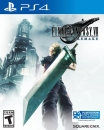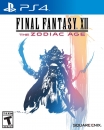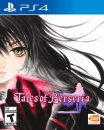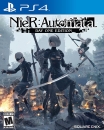Jumpin said:
Animal Crossing - brilliant and original game that fundamentally began a paradigm shift in how games can be viewed. While it wasn’t the first casual game, there were a few browser games by that point that did well (A game called Earth2025 and its sister game Utopia we’re doing freemium casual gaming in the 1990s) it was the first major casual game, and the one that got the new formula talked about. Animal Crossing didn’t encourage binge play, rather it encouraged short bursts at least once a day, and probably multiple times. My personal experience with that game was a living world where friends would come over and literally spend days playing the game, it was really addictive. But the series was a sleeper hit because while the fans knew it was special, it was relatively small, and its destiny was to grow bigger and bigger as a series until fifth iteration hit the Switch and becoming the #1 best selling game for a single dedicated gaming system (aside from Wii Sports). I agree, the CDs would have made a gigantic difference on the N64. Many of the genres the Nintendo systems lost, like being THE place for RPGs and 2D platformers would have been there still. Although, Nintendo’s problems with third parties were deeper than the cartridges, I can’t help but think the CDs would have made the difference and would have made any wounds a lot easier to overcome. One of the major issues was most RPGs couldn’t run on cartridge without massive expenses and sacrifices to the audio and visuals, and that’s why almost all of them went to PlayStation. I also agree that N64 kind of felt like a fad. It was my #1 console for about 6 months or so, and then it was Playstation, and a lot of that happened around the holidays of 97 through Spring of 98 with key games like FF7 and Resident Evil 2—and I think a lot of Nintendo fans experienced a very similar thing (There were earlier games too, Resident Evil 1, Tomb Raider, Twisted Metal, Crash Bandicoot, and Wipeout come to mind). But, in Europe, at least, Sony ads touted how the PlayStation had X00 games on it, meanwhile Nintendo was like “We got TWO new games this month, NBA Hangtime AND F1 Pole Position 64! So, I think if Nintendo could have the quantity, then it would have been a different story. Not just the quantity, but price-wise the N64 games were kind of insane, from around 35% more to more than triple the price of Playstation games—that is also a side effect of cartridges vs. CDs. So, to date, I still feel that cartridges were Nintendo’s alltime biggest mistake, and the harm it did during the N64 generation is still healing at the end of 2022. Two major products Nintendo could have had on their consoles as possible exclusives are Final Fantasy and Grand Theft Auto—GTA was made by a “second party”/Dream Team studio, DMA (before it was Rockstar North), who was very close with Nintendo until the stresses of the N64 era. We also might have never lost Rare. But all three of those companies had other issues with Nintendo that went deeper (particularly DMA). Yamauchi was very insulting to Square and didn’t think Rare was worth the 200-300 million to buy. DMA, I’m not sure that was Yamauchi, but Nintendo was overly controlling of their vision, wanted them to make RPGs to fill in the gap on the N64, not vehicle games (Body Harvest, GTA, Space Station Silicon Valley), and that resulted in GTA getting pulled to windows and eventually PSX, and development on Body Harvest and Space Station for N64 was nightmarish. |
Nintendo really just needed to compromise with Squaresoft. Squaresoft was super close with Nintendo and working on Super Mario RPG even at the time, effectively an internal Nintendo studio basically. They told Nintendo the N64 had to have a optical disc drive and gave Yamauchi a bunch of other suggestions, but Yamauchi ignored all of them and basically left them with no choice but to go elsewhere.
If they had compromised with Square, they would've kept the Japanese RPG strangehold the Famicom and Super Famicom. Strangehold on the Japanese market means Capcom, Enix, Konami, Namco have to support Nintendo whether they are best buds or not (Capcom was fairly close with Nintendo anyway, Konami too). Say bye bye to games like Metal Gear Solid being exclusive to Playstation, Sony, no way in this scenario would Konami be willing to keep a game like that off the N64, they might even make it N64 exclusive (Super Famicom had plenty of games from Capcom and Konami that weren't on other systems).
Which then trickles over to the US/Euro markets because an N64 with Nintendo + Rare + Square + Enix + Capcom + Konami + Namco support and the CD format would be too much for any Western 3rd party to ignore.
And yeah you're right, DMA Design was working as a Nintendo 2nd party too, lol, this is the studio that would eventually go on to make Grand Theft Auto. Another one of Nintendo's 2nd party partners during that time was Angel Studios (they did Ken Griffey Jr. MLB for Nintendo and also were working on a vehicle combat game with Mr. Miyamoto for Nintendo called Buggie Boogie) which is today Rockstar San Diego (the Red Dead Redemption series). So lol, Nintendo basically had the developers of Final Fantasy, Grand Theft Auto, and Red Dead Redemption along with Rareware at their peak all under one umbrella.
Unbelievable.




















































